Filter by
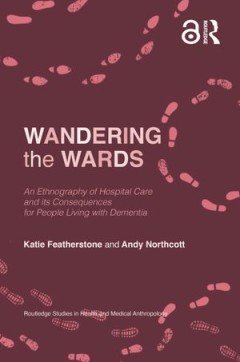
Wandering the Wards: An Ethnography of Hospital Care and its Consequences for…
Wandering the Wards provides a detailed and unflinching ethnographic examination of life within the contemporary hospital. It reveals the institutional and ward cultures that inform the organisation and delivery of everyday care for one of the largest populations within them: people living with dementia who require urgent unscheduled hospital care. Drawing on five years of research embedded in …
- Edition
- -
- ISBN/ISSN
- 9781000185416
- Collation
- -
- Series Title
- -
- Call Number
- 301 FEA e

Ideational Leadership in German Welfare State Reform
The author of this innovative study argues that key politicians and their policy ideas, through "ideational leadership", have played an important role in the passing of structural reforms in the change-resistant German welfare state. This argument is based on in-depth case studies of individual reforms in health care, pensions and unemployment insurance since the early 1990s as well as a concis…
- Edition
- -
- ISBN/ISSN
- 9789089641861
- Collation
- -
- Series Title
- -
- Call Number
- -

Hybrid Museum Experiences Theory and Design
"So you’re the one getting this gift? Lucky you! Someone who knows you has visited the museum. They searched out things they thought you would care about, and they took photos and left messages for you." This is the welcoming message for the Gift app, designed to create a very personal museum visit. Hybrid Museum Experiences use new technologies to augment, expand or alter the physical experi…
- Edition
- -
- ISBN/ISSN
- 9789048552849
- Collation
- -
- Series Title
- -
- Call Number
- -
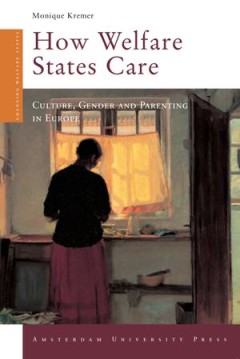
How Welfare States Care
A social revolution has taken place in Europe. Women's employment patterns changed drastically the last decades. But they are still different across Europe. Welfare state scholars often presume that diversity and change in women's employment across Europe is based on financial (dis) incentive structures embedded in welfare states. This book shows, by in depth analyses of women's (and men's) emp…
- Edition
- -
- ISBN/ISSN
- 9789053569757
- Collation
- -
- Series Title
- -
- Call Number
- -
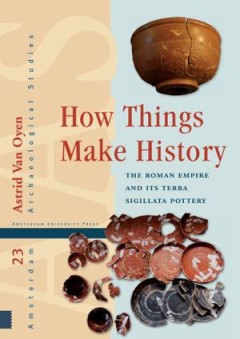
How Things Make History The Roman Empire and its terra sigillata Pottery
Bright red terra sigillata pots dating to the first three centuries CE can be found throughout the Western Roman provinces. The pots' widespread distribution and recognisability make them key evidence in the effort to reconstruct the Roman Empire's economy and society. Drawing on recent ideas in material culture, this book asks a radically new question: what was it about the pots themselves tha…
- Edition
- -
- ISBN/ISSN
- 9789048529933
- Collation
- -
- Series Title
- -
- Call Number
- -
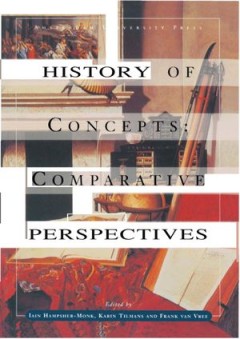
History of Concepts
Although vastly influential in German-speaking Europe, conceptual history (Begriffsgeschichte) has until now received little attention in English. This genre of intellectual history differs from both the French history of mentalités and the Anglophone history of discourses by positing the concept - the key occupier of significant syntactical space - as the object of historical investigation. C…
- Edition
- -
- ISBN/ISSN
- 9789053563069
- Collation
- -
- Series Title
- -
- Call Number
- -
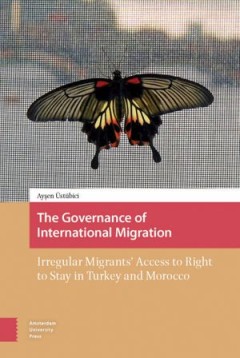
The Governance of International Migration Irregular Migrants' Access to Righ…
As concern about immigration has grown within Europe in recent years, the European Union has brought pressure to bear on countries that are allegedly not sufficiently governing irregular migration with and within their borders. This book looks at that issue in Turkey and Morocco, showing how it affects migrants in these territories, and how migrant illegality has been produced by law, practiced…
- Edition
- -
- ISBN/ISSN
- 9789048532803
- Collation
- -
- Series Title
- -
- Call Number
- -
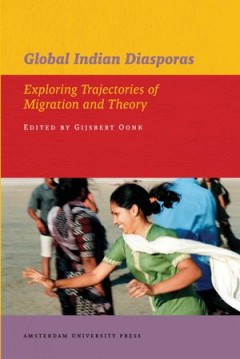
Global Indian Diasporas
This book discusses the relation of South Asian migrants to their homeland, the reproduction of Indian culture abroad and the role of the Indian state in reconnecting migrants of India, focusing on the limits of the diaspora concept, rather than on its possibilities. From a comparative perspective, using examples from South Asian communities in Suriname, Mauritius, East Africa, the UK, Canada a…
- Edition
- -
- ISBN/ISSN
- 9789053560358
- Collation
- -
- Series Title
- -
- Call Number
- -
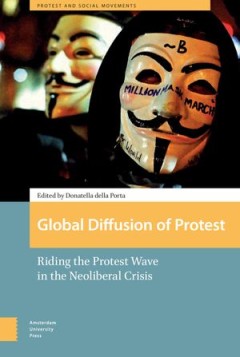
Global Diffusion of Protest Riding the Protest Wave in the Neoliberal Crisis
Recent years have seen a new development in the growth and spread of popular protest: protests that began as local, homogeneous events-such as Occupy Wall Street or the protests of the Arab Spring-quickly left their original locations and local specificity behind and became global. This book looks at the development of this wave of protests, with an eye on protests against austerity and neolibe…
- Edition
- -
- ISBN/ISSN
- 9789048531356
- Collation
- -
- Series Title
- -
- Call Number
- -
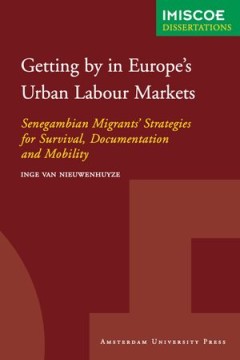
Getting by in Europe's Urban Labour Markets Senegambian Migrants' Strategies…
This book examines two major social changes experienced by European cities in the last two decades: post-industrial economic restructuring and new immigration flows. The link between both has been extensively discussed throughout a variety of theoretical approaches and in numerous descriptive contributions. Adding to those studies, this research focuses on three elements of migratory experience…
- Edition
- -
- ISBN/ISSN
- 9789089640505
- Collation
- -
- Series Title
- -
- Call Number
- -
 Computer Science, Information & General Works
Computer Science, Information & General Works  Philosophy & Psychology
Philosophy & Psychology  Religion
Religion  Social Sciences
Social Sciences  Language
Language  Pure Science
Pure Science  Applied Sciences
Applied Sciences  Art & Recreation
Art & Recreation  Literature
Literature  History & Geography
History & Geography